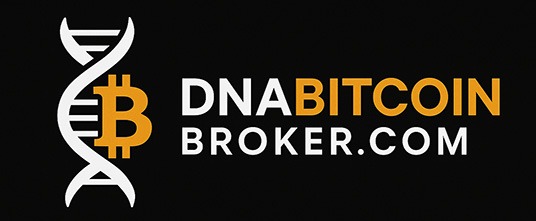“Property built empires in the past. Bitcoin is building them now.” – DNA Bitcoin Broker Knowledge Base.
For decades, real estate was the cornerstone of wealth.
But in 2025, a quiet rotation is underway.
Institutional investors, family offices, and private funds are shifting their focus from property portfolios to digital assets like Bitcoin and tokenised real estate.
As traditional property markets stagnate and global liquidity tightens, Bitcoin is emerging not as speculation, but as the new reserve asset of the digital economy.
Learn more: What Is Bitcoin and Why It Matters
The Changing Economics of Real Estate
For generations, property ownership was synonymous with safety.
But the post-2020 decade has changed the equation.
High interest rates, stricter lending rules, and falling yields have reshaped real estate’s reputation as a “stable” store of value:
-
– Global housing prices declined by an average of 8% between 2022–2024 (OECD).
-
– Commercial real estate faces the biggest downturn in 30 years as remote work reduces demand.
-
– Rental yields in prime European cities hover between 2–3%, far below inflation-adjusted targets.
In short, real estate remains illiquid, slow, and dependent on central bank policy.
By contrast, Bitcoin’s fixed supply and global accessibility are increasingly attractive to wealth managers seeking returns that are uncorrelated with fiat-based assets.
Explore: Institutional Bitcoin Adoption
Bitcoin: The New Asset of Scarcity
Since 2020, Bitcoin has outperformed nearly every major asset class, including gold and real estate.
Key data points in 2025:
-
– Bitcoin ETFs globally hold over $65 billion in assets, led by U.S. approvals.
-
– The number of Institutional wallets holding >1,000 BTC has doubled since 2022.
-
– Post-halving supply issuance has reduced new Bitcoin flow to just 450 coins per day.
In an age of money printing and negative real yields, Bitcoin’s mathematical scarcity has become its moat.
And with global property markets struggling to deliver above-inflation returns, Bitcoin’s liquidity and portability make it the modern equivalent of land — borderless and incorruptible.
The Rise of Tokenised Real Estate
The story doesn’t end with competition — it’s also convergence.
Through blockchain Tokenisation, real estate itself is entering the crypto era.
Tokenisation platforms are fractionalising ownership of property portfolios, enabling investors to trade real estate-backed tokens with instant settlement and full transparency.
According to Boston Consulting Group, real-world asset (RWA) Tokenisation could exceed $16 trillion by 2030 — making property the largest on-chain asset class after Bitcoin.
At DNA Bitcoin Broker, we see the future not as “Bitcoin vs Real Estate” but Bitcoin + Tokenised Real Estate — where digital scarcity meets tangible value.
Explore: Institutional Tokenisation
Liquidity, Mobility, and Tax Efficiency
One of Bitcoin’s greatest strengths is mobility — you can move billions across borders in seconds.
Real estate, on the other hand, is the most illiquid asset on earth.
Even tokenised property cannot yet match Bitcoin’s liquidity or ease of diversification.
Additionally, institutional investors are realising that crypto taxation frameworks in the EU (under MiCA) and Asia-Pacific now provide greater clarity than real estate’s opaque tax systems and depreciation schedules.
In 2025, Bitcoin offers not just growth, but structural efficiency — fast, auditable, and global.
Learn more: Global Impact of MiCA
DNA Bitcoin Broker: Where Digital Wealth Meets Real Assets
At DNA Crypto, we help investors bridge traditional wealth with the new era of tokenised finance.
Our institutional brokerage provides:
-
– Direct Bitcoin trading and custody under MiCA regulation
-
– Access to tokenised real estate and RWAs
-
– Cross-border liquidity solutions for property-backed assets
-
– Portfolio diversification strategies that combine tangible and digital wealth
The next generation of investors isn’t choosing between Bitcoin and real estate — they’re using both to build balanced, borderless portfolios.
Explore: Crypto Custody Solutions
The Bottom Line
Real estate built yesterday’s empires.
Bitcoin is building tomorrow’s.
As the world transitions to digital value, Bitcoin is redefining what it means to own, hold, and grow wealth — while tokenised property transforms illiquid assets into liquid networks.
The question isn’t Bitcoin or real estate.
It’s how to make both work together — in a world where digital ownership defines prosperity.
Image Source: Adobe Stock
Disclaimer: This article is for informational purposes only and does not constitute legal, tax, or investment advice.












